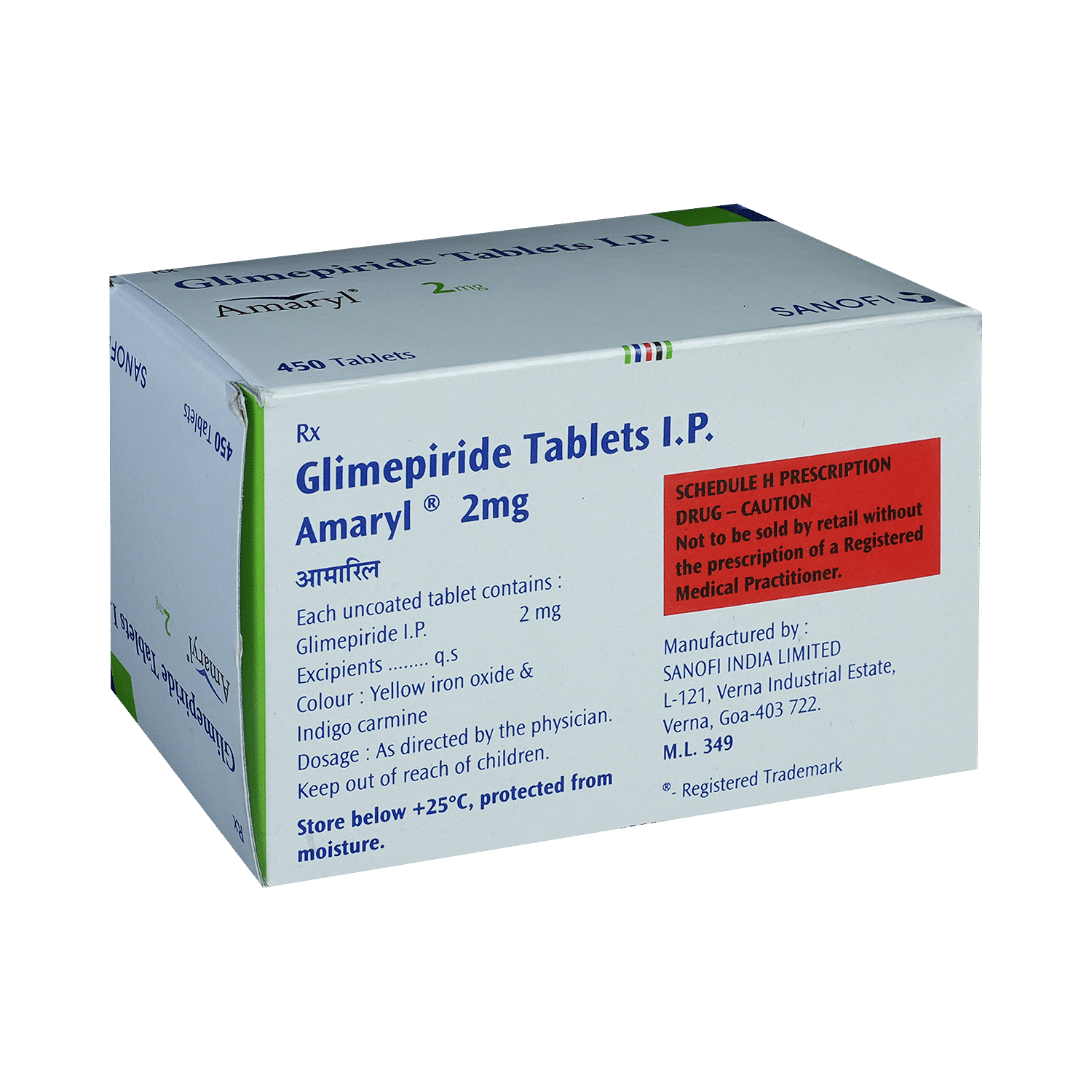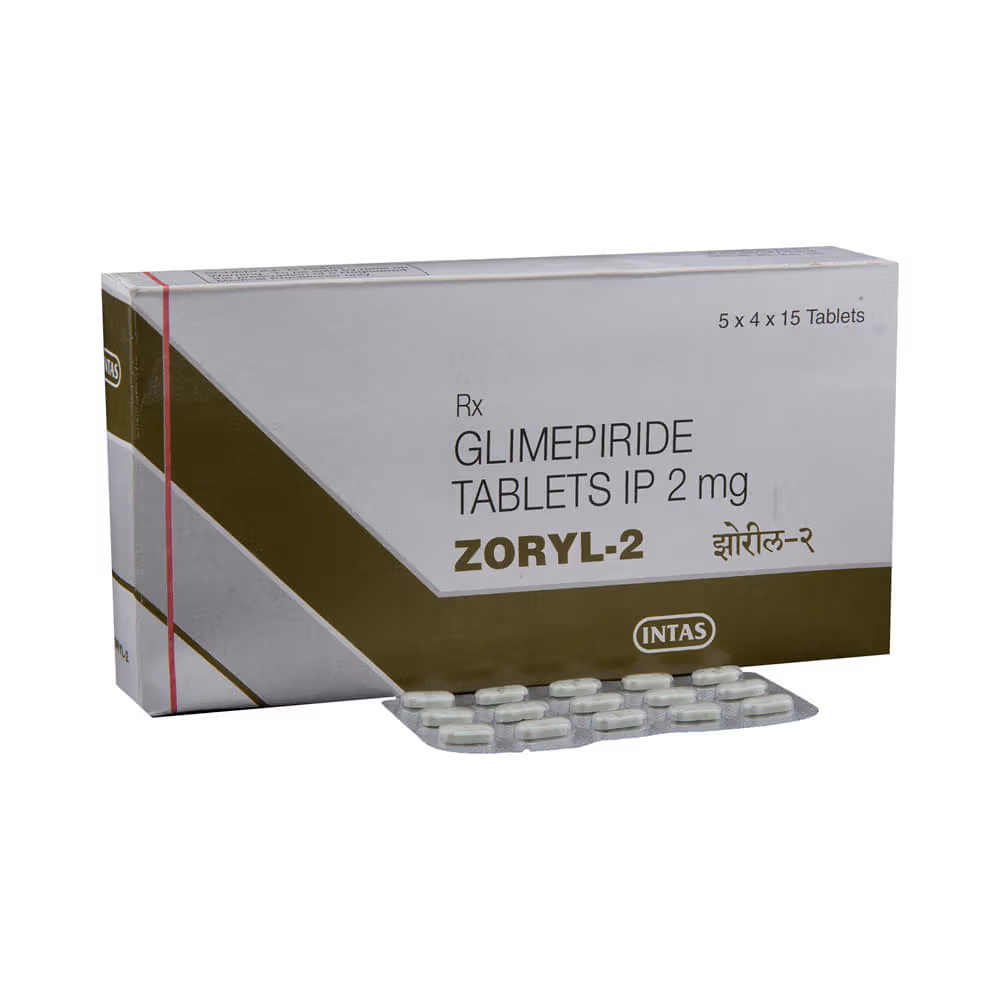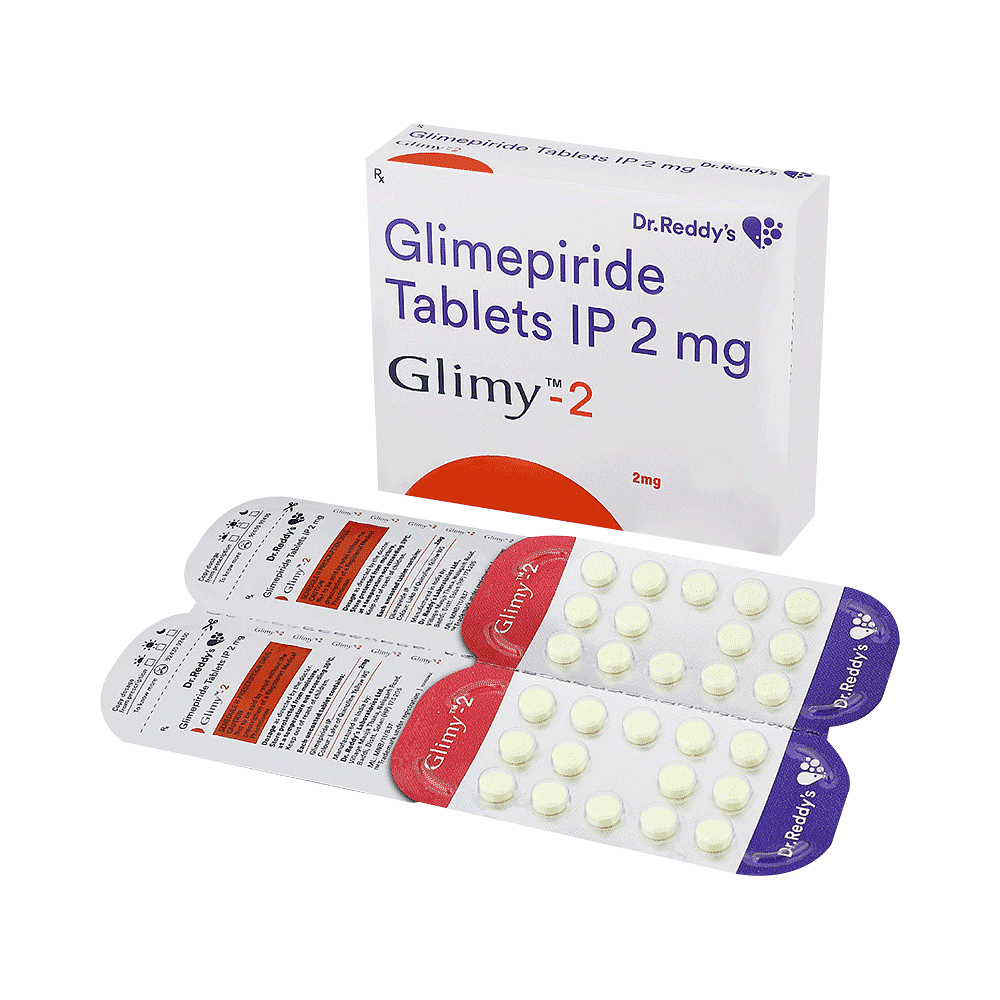
Glimimore 2mg Tablet
Manufacturer
Morepen Laboratories Ltd
Salt Composition
Glimepiride (2mg)
Key Information
Short Description
Glimimore 2mg Tablet is a sulfonylurea medication used to treat type 2 diabetes mellitus in adults, helping to control blood sugar levels and prevent serious complications.
Dosage Form
Tablet
Introduction
Glimimore 2mg Tablet is an antidiabetic medication that belongs to a group of medicines called sulfonylureas. It is used to treat type 2 diabetes mellitus in adults. It helps control blood sugar levels in people with diabetes thereby preventing serious complications of diabetes such as kidney damage and blindness.
Directions for Use
Take this medicine in the dose and duration as advised by your doctor. Swallow it as a whole. Do not chew, crush or break it. Glimimore 2mg Tablet is to be taken with food.
How it works
Glimimore 2mg Tablet is an antidiabetic medication. It works by increasing the amount of insulin released by the pancreas in order to lower blood glucose.
Quick Tips
Take Glimimore 2mg Tablet shortly before or with the first main meal of the day (usually breakfast) Exercise regularly Eat a healthy diet and take your other diabetes medicines (if prescribed) alongside Monitor your blood sugar level regularly while you are taking Glimimore 2mg Tablet Glimimore 2mg Tablet can cause hypoglycemia (low blood sugar level) when used with other antidiabetic medicines, alcohol or if you delay or miss a meal Be careful while driving or operating machinery until you know how Glimimore 2mg Tablet affects you Always carry some sugary food or fruit juice with you in case you experience hypoglycemic symptoms Your doctor may check your liver function regularly. Inform your doctor if you develop symptoms such as abdominal pain, loss of appetite, or yellowing of the eyes or skin (jaundice)
Related Medicines

Amaryl 2mg Tablet

Zoryl-2 Tablet

Glimiprex 2 Tablet

Isryl 2 Tablet

Glimda 2 Tablet

GP-2 Tablet

Glimisave 2mg Tablet 15'S

Glimy-2 Tablet

Glimestar-2 Tablet

Diapride 2 Tablet
Frequently asked questions
What is the dosage of Glimimore 2mg Tablet?
The recommended starting dose of Glimimore 2mg Tablet is 1 mg or 2 mg once daily, taken with breakfast. If you are at a higher risk of low blood sugar (e.g., the elderly or patients with renal impairment), your doctor may recommend a lower starting dose. The usual maintenance dose is 1–4 mg once daily, and the maximum recommended dose is 8 mg once daily. Doses will be gradually increased based on your blood glucose level.
Does Glimimore 2mg Tablet make you sleepy?
Glimimore 2mg Tablet itself does not cause sleepiness. However, it may cause hypoglycemia (low blood sugar) when used with other anti-diabetes medicine, which can lead to feelings of drowsiness or difficulty sleeping.
Is Glimimore 2mg Tablet safe for kidneys?
Glimimore 2mg Tablet does not affect the kidneys in patients with normal kidney function. However, its use should be avoided in patients with severe kidney disease since Glimimore 2mg Tablet is primarily eliminated by the kidneys.
Does Glimimore 2mg Tablet cause memory loss?
No, it is not known that Glimimore 2mg Tablet causes memory loss. However, the use of Glimimore 2mg Tablet may cause low blood sugar which can lead to problems with concentration and reduced alertness.
Who should not take Glimimore 2mg Tablet?
Glimimore 2mg Tablet should be avoided by patients who are allergic to it, have severe kidney or liver disease, or have a history of certain medical conditions. It is also recommended that this medication be used with caution in patients with a history of heart problems or other serious health issues.
Can Glimimore 2mg Tablet cause dizziness?
Yes, Glimimore 2mg Tablet can cause dizziness as a side effect. If you experience dizziness while taking this medication, it is recommended that you sit or lie down until the symptoms pass.
Is Glimimore 2mg Tablet safe to use?
Yes, Glimimore 2mg Tablet is generally considered safe when used as directed by your doctor. However, it may show some side effects, so it's essential to follow the recommended dosage and usage guidelines.
Can people with diabetes have proteins?
Yes, people with diabetes can include proteins along with other essential nutrients in their daily diet. Proteins are one of the major energy providers among all essential nutrients.
Are artificial sweeteners good for people with diabetes?
No, artificial sweeteners are not recommended for people with diabetes as they may cause mild to severe side effects and can lead to further complications.
Can diabetes cause kidney failure?
Yes, uncontrolled diabetes can cause kidney failure in the long run. It's essential to keep diabetes under control by making dietary changes, monitoring sugar levels regularly, getting routine blood tests done, and taking prescribed medications on time.
Can diabetes be cured?
Diabetes is a condition that can be managed through simple lifestyle changes, diet, and medications, allowing people with the condition to lead a healthy life.


